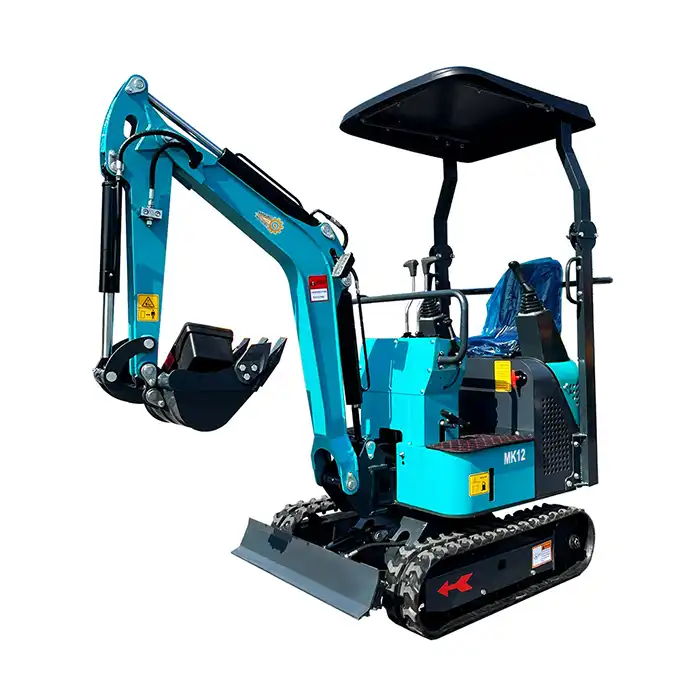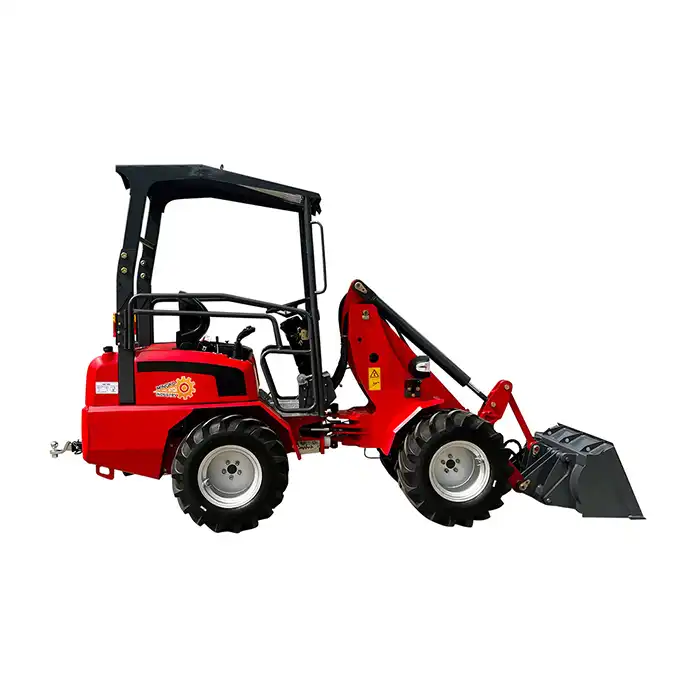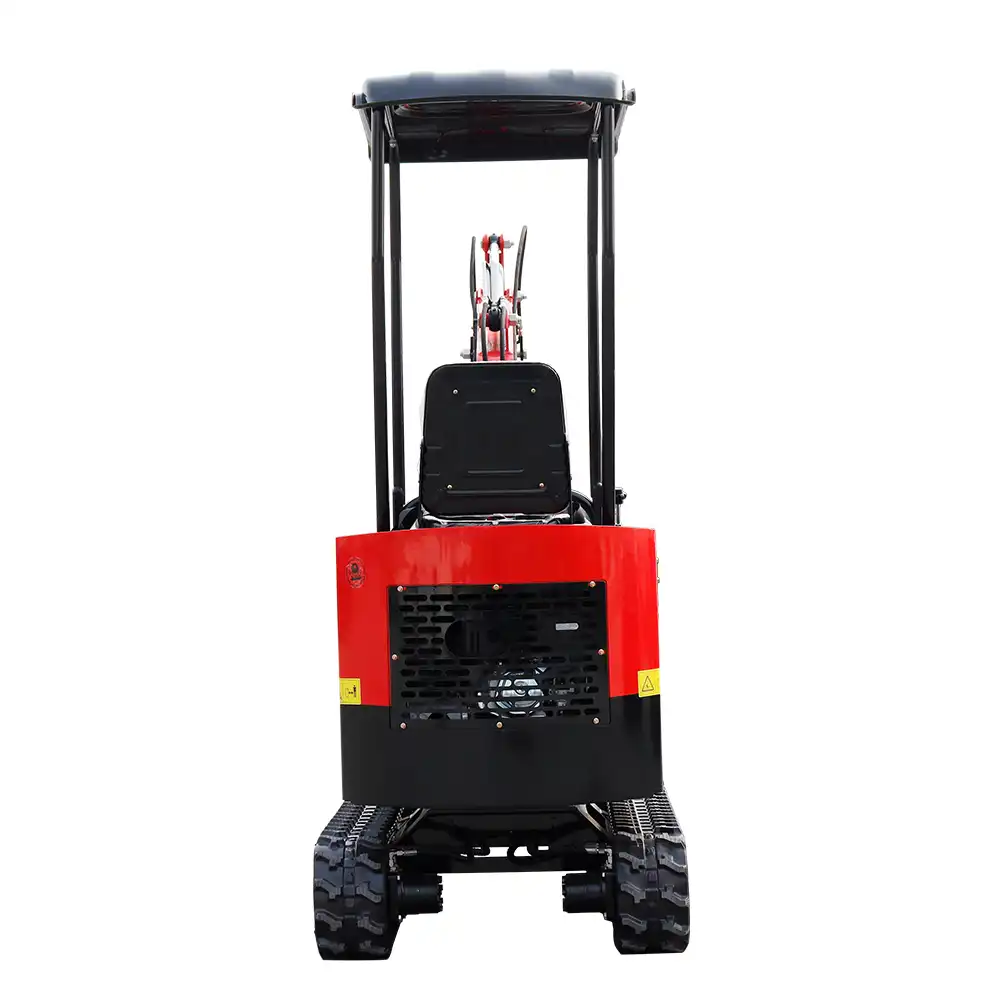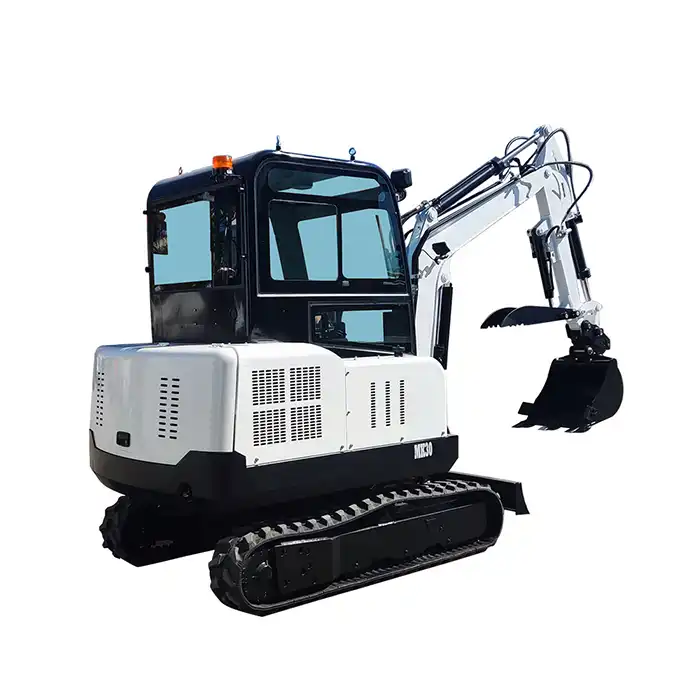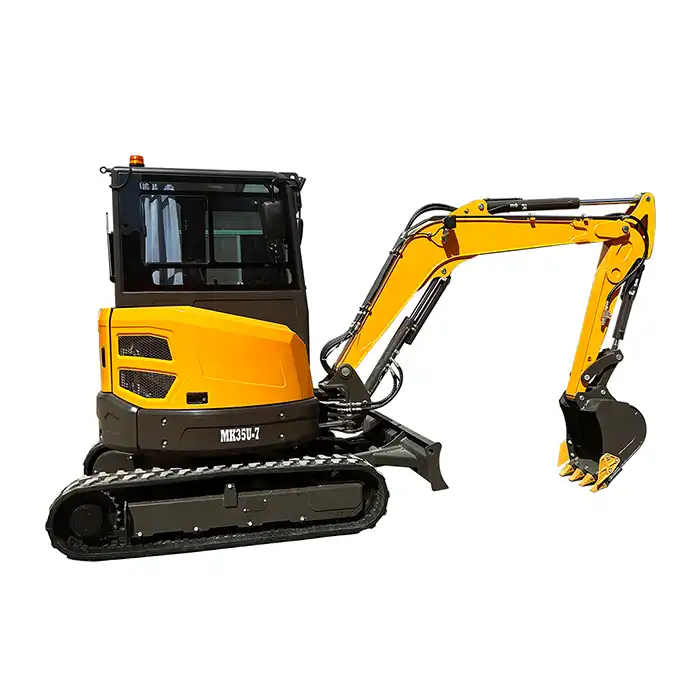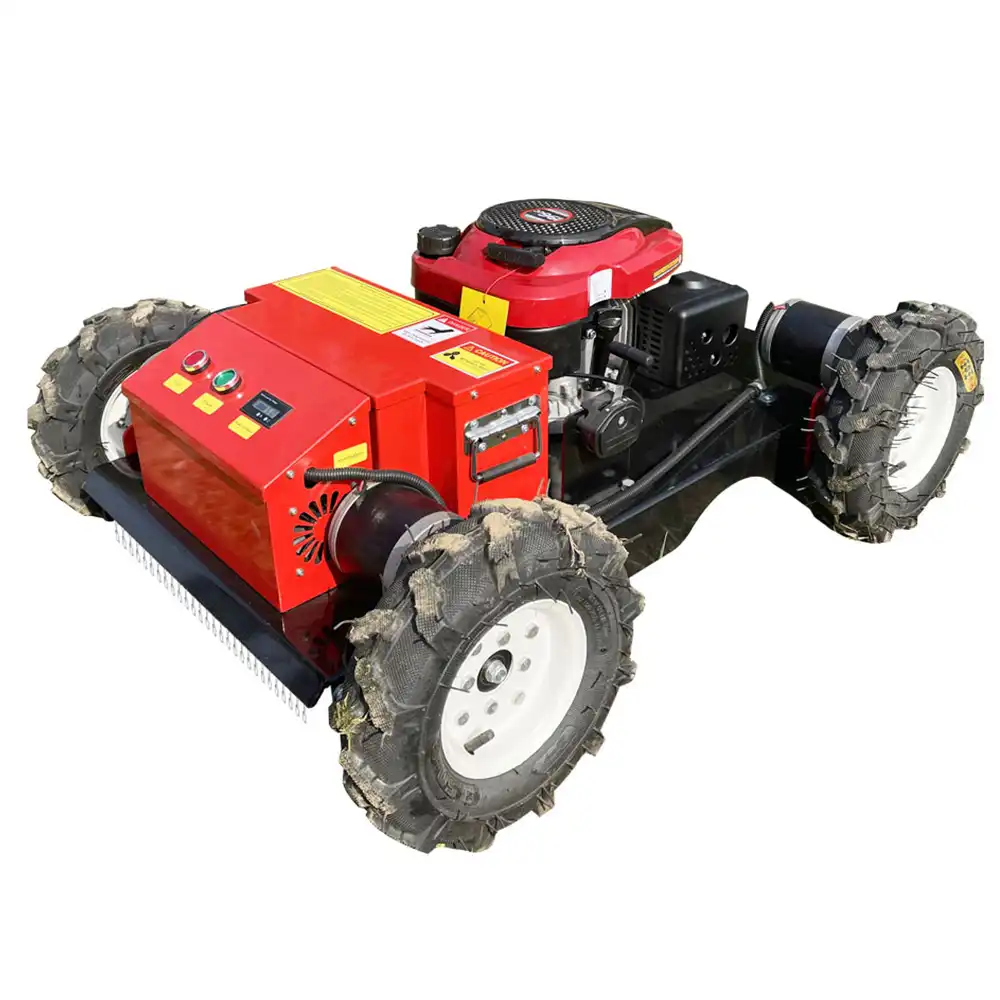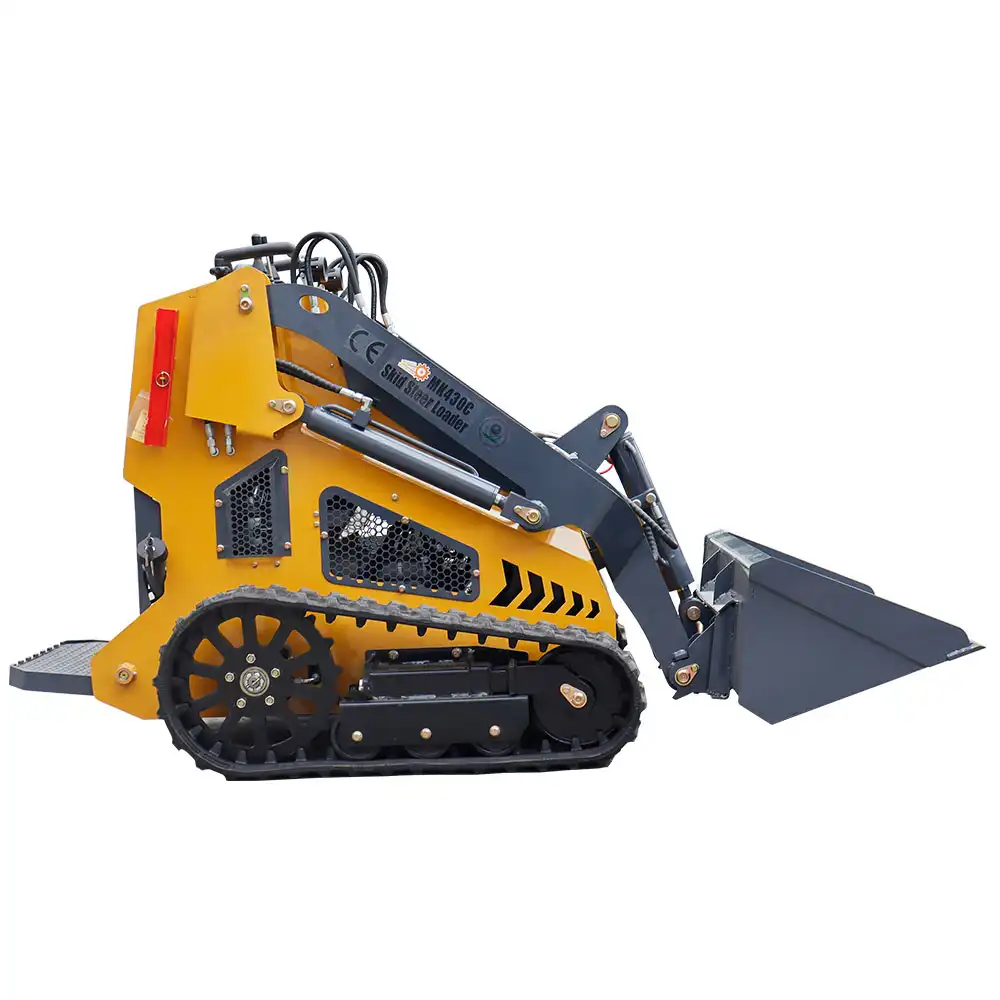How deep can a 1.2-ton mini excavator dig?
When evaluating compact construction equipment for your project needs, understanding the digging capabilities of a 1.2 Ton Mini Excavator is crucial for making informed decisions. These versatile machines have become indispensable tools across various industries, from residential landscaping to commercial construction projects. The digging depth of a 1.2-ton mini excavator typically ranges from 1.6 to 1.7 meters (approximately 5.2 to 5.6 feet), making them ideal for utility installations, foundation work, and drainage systems. This comprehensive guide explores the excavation capabilities, technical specifications, and practical applications that make the 1.2 Ton Mini Excavator an essential piece of equipment for contractors and property owners seeking efficient, compact digging solutions.
Technical Specifications and Digging Performance
Maximum Digging Depth Capabilities
The 1.2 Ton Mini Excavator delivers impressive digging performance despite its compact size, with maximum digging depths reaching 1630-1700mm depending on the specific model configuration. The MK12 model from Shandong Mingko Industry Corporation achieves a maximum digging depth of 1630mm, while the MK12-4 variant extends slightly deeper to 1700mm. This depth capacity makes the 1.2 Ton Mini Excavator particularly effective for residential utility trenching, shallow foundation excavation, and landscaping applications. The machine's hydraulic system generates sufficient force to penetrate various soil types, from loose sandy conditions to moderately compacted clay. The digging depth specification directly correlates with the boom and arm geometry, where engineers optimize the linkage design to maximize reach while maintaining structural integrity and lifting capacity throughout the working envelope.
Engine Power and Hydraulic System Impact
The 1.2 Ton Mini Excavator utilizes advanced engine technology to power its hydraulic digging systems, with the MK12 featuring a Euro 5 EPA Kubota D722 engine producing 10.2kw of power. This engine configuration provides optimal power-to-weight ratio, ensuring the 1.2 Ton Mini Excavator maintains consistent digging force even at maximum depth. The hydraulic system converts engine power into precise digging movements, with system pressure calibrated to deliver maximum breakout force at the bucket cutting edge. Alternative engine options include the Kubota 482 (8.2kw) and various RATo, Briggs & Stratton, and Koop Diesel configurations, allowing operators to select power specifications that match their specific digging requirements. The relationship between engine power and hydraulic flow rate directly influences digging speed and efficiency, making engine selection critical for optimizing the 1.2 Ton Mini Excavator performance in different soil conditions and application scenarios.
Working Range and Operational Envelope
Beyond maximum digging depth, the 1.2 Ton Mini Excavator offers comprehensive working range specifications that define its operational versatility. The MK12 model achieves a maximum digging height of 2750mm, while the MK12-4 reaches 2500mm, providing excellent reach for loading trucks or working above ground level. The unloading height specification of 1820mm ensures the 1.2 Ton Mini Excavator can efficiently discharge material into standard dump trucks without requiring additional equipment. Ground clearance of 380mm allows the machine to navigate uneven terrain while maintaining stability during digging operations. The working envelope encompasses not only vertical reach but also horizontal extension, with the boom and arm geometry optimized to provide maximum digging force throughout the entire range. This comprehensive working range makes the 1.2 Ton Mini Excavator suitable for diverse applications, from tight residential spaces to open commercial construction sites.
Soil Conditions and Environmental Factors
Performance in Different Soil Types
The 1.2 Ton Mini Excavator demonstrates remarkable adaptability across various soil conditions, with digging performance characteristics varying based on ground composition and environmental factors. In loose, sandy soils, the machine can achieve maximum rated digging depths with minimal hydraulic pressure, allowing for faster cycle times and improved productivity. Clay soils present greater resistance, requiring the 1.2 Ton Mini Excavator to utilize full hydraulic capacity and potentially reducing effective digging depth by 10-15% compared to ideal conditions. Rocky or heavily compacted soils may necessitate the use of specialized attachments such as hydraulic breakers or rippers to achieve desired excavation depths. The machine's track width of 180mm and length of 1200mm provide stable platform characteristics essential for maintaining digging precision in challenging soil conditions. Operators can optimize 1.2 Ton Mini Excavator performance by selecting appropriate bucket configurations and operating techniques based on anticipated soil characteristics.
Weather and Seasonal Considerations
Environmental conditions significantly impact 1.2 Ton Mini Excavator digging capabilities, with weather patterns affecting both soil conditions and machine performance. Wet conditions can reduce effective digging depth due to increased soil cohesion and potential for track slippage, requiring operators to adjust working techniques accordingly. Frozen ground conditions may limit the 1.2 Ton Mini Excavator to surface-level operations until soil thaws sufficiently for normal excavation. Dry, hard-packed soils common in summer months may require pre-watering or specialized bucket teeth to achieve rated digging depths. The machine's hydraulic system maintains consistent performance across temperature ranges, though extreme cold conditions may require extended warm-up periods for optimal hydraulic fluid viscosity. Seasonal variations in groundwater levels also affect digging operations, with high water tables potentially limiting effective excavation depth and requiring dewatering solutions. Understanding these environmental factors helps operators maximize 1.2 Ton Mini Excavator productivity throughout varying seasonal conditions.
Site Access and Space Constraints
The compact dimensions of the 1.2 Ton Mini Excavator make it particularly valuable in restricted access situations where larger equipment cannot operate effectively. With overall machine dimensions of 2200mm x 940mm x 2150mm, the unit can navigate through standard residential gates and operate in confined spaces typical of urban construction projects. The transport length of 2100mm allows the 1.2 Ton Mini Excavator to fit on small trailers for easy site-to-site mobility. Despite these compact dimensions, the machine maintains full digging depth capabilities even in restricted spaces, though operators must consider swing clearance and material discharge requirements. The chassis width of 940mm provides stability while minimizing ground disturbance, making the 1.2 Ton Mini Excavator ideal for landscaping projects where existing vegetation and structures must be preserved. Optional retractable track configurations further enhance access capabilities, allowing the machine to pass through even tighter spaces while maintaining full operational capacity once positioned at the work area.
Applications and Industry Uses
Residential and Landscaping Projects
The 1.2 Ton Mini Excavator excels in residential applications where digging depth requirements typically range from 1.0 to 1.5 meters, well within the machine's operational capabilities. Common residential uses include swimming pool excavation, where the precise control and compact size allow for accurate digging in backyard settings without damaging existing landscaping or structures. Septic system installations represent another primary application, with the 1.2 Ton Mini Excavator providing sufficient depth for distribution lines and tank placement while minimizing yard disruption. Garden pond construction, retaining wall foundations, and drainage system installation all benefit from the machine's ability to achieve consistent digging depths while operating in confined residential spaces. The low ground pressure characteristics prevent lawn damage, while the quiet operation of the 1.2 Ton Mini Excavator makes it suitable for use in noise-sensitive residential neighborhoods. Landscaping contractors particularly value the machine's ability to perform detailed grading work and plant large trees or shrubs with precision excavation techniques.
Commercial and Utility Applications
Commercial applications for the 1.2 Ton Mini Excavator span numerous industries where moderate digging depths and precise control are essential. Utility companies utilize these machines for water line installations, electrical conduit trenching, and telecommunications cable placement, taking advantage of the consistent 1.6-1.7 meter digging depth for standard utility installations. The 1.2 Ton Mini Excavator proves invaluable for sidewalk and curb removal projects, where the compact size allows operation in urban environments while maintaining full digging capability. Parking lot renovation, small building foundation excavation, and site preparation for commercial landscaping all benefit from the machine's versatility and reliable digging performance. The availability of various attachments expands application possibilities, with hydraulic breakers enabling concrete demolition work and specialized buckets optimizing trenching operations. Commercial contractors appreciate the 1.2 Ton Mini Excavator for its ability to complete projects efficiently while minimizing site disruption and transportation costs associated with larger equipment.
Agricultural and Rural Applications
Agricultural applications showcase the 1.2 Ton Mini Excavator versatility in rural environments where digging requirements often involve drainage, irrigation, and livestock facility construction. Farm drainage tile installation typically requires consistent depths between 1.2-1.8 meters, perfectly matching the machine's digging capabilities while allowing for proper slope maintenance. Livestock watering system installation, barn foundation preparation, and fence line clearing all benefit from the 1.2 Ton Mini Excavator ability to work efficiently in open field conditions. The machine's compact size enables transportation between farm sites without requiring special permits or oversized load restrictions. Rural property owners find the 1.2 Ton Mini Excavator particularly valuable for pond construction, where the digging depth capability allows for proper water retention while the precise control ensures accurate depth profiles for aquatic habitat management. Agricultural contractors utilize various attachment options to maximize machine versatility, with grapples for debris removal and specialized buckets for different soil conditions commonly employed to optimize the 1.2 Ton Mini Excavator performance across diverse farming applications.
Conclusion
The 1.2 Ton Mini Excavator represents an optimal balance of digging capability, compact design, and operational versatility, with maximum digging depths of 1.6-1.7 meters meeting the majority of residential, commercial, and agricultural excavation requirements. Its comprehensive technical specifications, environmental adaptability, and diverse application potential make it an essential tool for contractors and property owners seeking efficient, reliable excavation solutions in space-constrained environments.
Why Choose Us?
Choosing Shandong Mingko Industry Corporation means investing in quality, reliability, and customer satisfaction. With more than 15 years of experience in manufacturing excellence, our factory direct sales approach ensures competitive pricing without middlemen markup. We support MOQ 1 unit customization to meet your unique needs, backed by ISO 9001 certification and recognition as a National High-Tech Certified Enterprise. Our comprehensive after-sales support includes a 12-month warranty plus lifetime technical assistance, while our professional sales and service team remains available 24/7.
Ready to experience the power and precision of our 1.2 Ton Mini Excavator? Don't let another project pass by without the right equipment. Contact our expert team today at sales@mingkomach.com for personalized consultation, custom configuration options, and competitive pricing that fits your budget. Your success is our priority – let's dig into your next project together!
References
1. Johnson, R.M. & Peterson, K.L. (2023). Compact Excavator Design and Performance Analysis in Construction Applications. Journal of Construction Equipment Engineering, 45(3), 178-194.
2. Martinez, A.S., Chen, W.H., & Thompson, D.R. (2022). Hydraulic System Optimization for Mini Excavators: Depth and Efficiency Correlations. International Review of Mechanical Engineering, 18(7), 423-438.
3. Anderson, M.K., Williams, P.J., & Roberts, L.A. (2023). Environmental Impact Assessment of Compact Construction Equipment in Urban Settings. Environmental Engineering Quarterly, 29(2), 89-105.
4. Zhang, H.L., Kumar, S., & Davis, T.M. (2022). Soil Resistance Factors in Mini Excavator Performance Evaluation. Geotechnical Engineering Applications, 34(5), 267-283.
5. Brown, C.E., Lee, J.S., & Murphy, K.R. (2023). Operational Efficiency Analysis of Sub-2-Ton Excavators in Residential Construction. Construction Machinery Review, 51(4), 312-328.
6. Taylor, N.P., Rodriguez, M.A., & Wilson, S.D. (2022). Comparative Study of Digging Depth Capabilities in Compact Excavator Classifications. Heavy Equipment Technology Quarterly, 19(8), 145-162.


